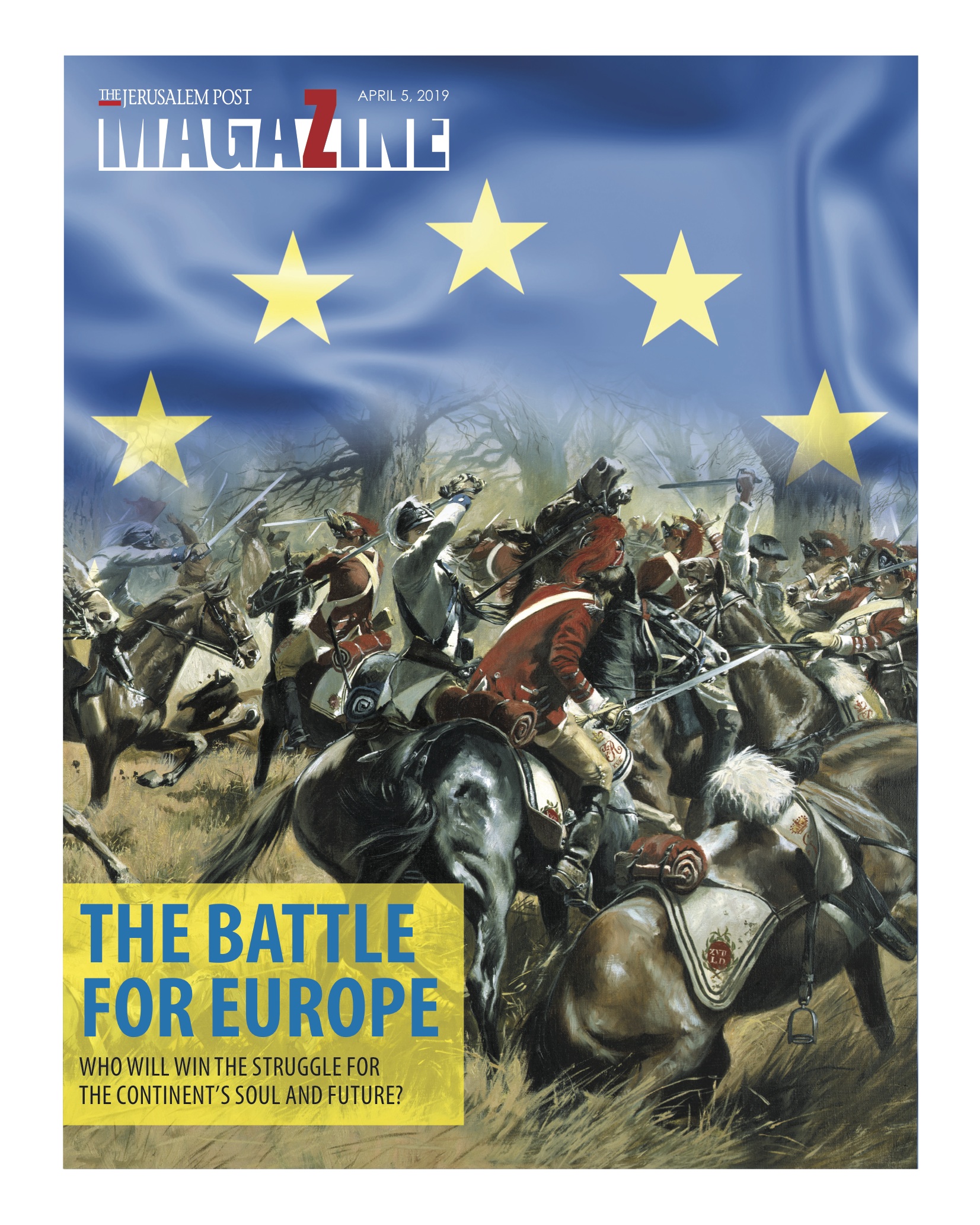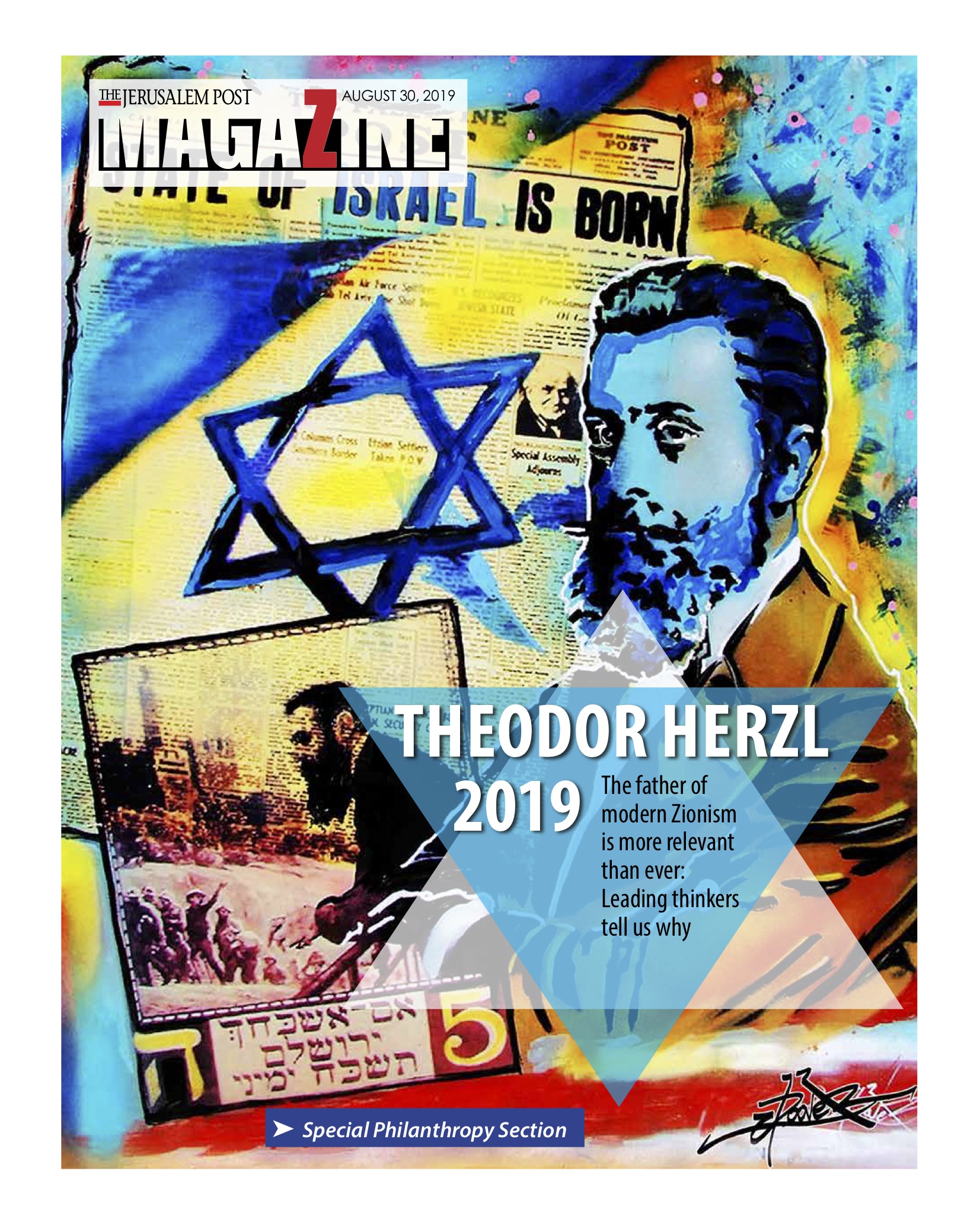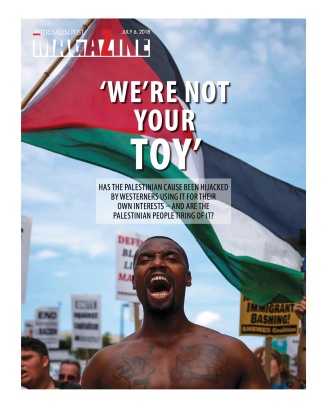The Jewish state’s visionary planted the seeds for a more perfect Europe in Israel, utilizing his unique understanding of European liberalism. As Europe debates its optimal road toward renewal, it could learn a lot from Herzl and his brainchild.
REPRINTS FROM THE ISRAEL HAYOM; BY GOL KALEV, DECEMBER 9, 2019
Europe is at a crossroads. Brexit and immigration prompted a debate about the essence of European liberalism. Luckily, Europe has an invaluable resource it can use in its deliberations: Theodor Herzl.
The visionary of the Jewish State was a prominent thinker of European liberalism at the end of the 19th Century. Yet, unlike other thinkers, Herzl’s ideas were not just theoretical – they were applied to the establishment of a state, and therefore can be evaluated based on tangible results.
Moreover, unlike others, Herzl’s had unique exposure to alternative approaches to Europeanism. Herzl was at the epicenter of the three political models of late 19th Century Europe: The super-national union, nationalist nation-state, and liberal democracy.
Herzl observed how the Habsburg monarchy, rooted in centuries of proud Austrian culture, has turned itself into a super-national kingdom. Indeed, Herzl benefited from the open-borders that allowed his family to relocate from Hungary to Vienna and for Jews, Polls, Galicians and other minorities to study at the University in Vienna. Herzl analyzed the imperfections of the super-national empire as well as its dangers. He even shared some of his thoughts with Austrian’s Prime-Minister Count Kasimir Badeni – who was Polish.
Herzl’s unique insight into the 19th Century super-national empire is of invaluable benefit to today’s Europe. Indeed, the EU bears some resemblance to the Austro-Hungarian Empire (though the branding improved – better than the German-Franco Empire).
Herzl was also an insider to the opposite model – nationalism. As a University student, Herzl became an adamant German nationalist. He was a fan of Bismarck and a meticulous student of his state-building endeavor. “The German spirit awoke,” Herzl wrote.
He was a member of the nationalist Albia fraternity. He proudly wore its uniform, engaged in its rituals, and sang songs of German patriotism. Herzl’s ability to be in the epicenter of a nationalist movement exposed him to its nuances and indeed its dangers. Herzl was there when German nationalism pivoted. He resigned from his fraternity once it decided to embrace the most extreme version of anti-Semitic nationalism – that of Richard Wagner. Herzl recognized that German nationalism is no longer about “improving” the Jews and Germanizing them, but rather about negating the Jews, and denying them a place amongst the nations – both as a collective and as individuals.
Yet, perhaps Herzl’s biggest added value to today’s Europe stems from his four years in Paris. Herzl spent his days in Palais Bourbon, the French parliament, as a correspondent for the Viennese newspaper Neue Freie Presse. Herzl inserted himself in the Mecca of European liberalism, interacting with fellow journalists, intellectuals and politicians of various factions, such as with Georges Clemenceau.
Herzl observed French politics at its best and its worst. He analyzed the interplay between Democracy and populism, studying the system of give-and-take which is at the core Democratic governance, and observed the power struggle between Democracy’s various branches. Herzl internalized the imperfections of the Liberal Democracy and applied it to his vision of the Jewish State. Indeed, Herzl planted the seeds for an improved version of Europe. In this regard, today’s Israel represents a scion of pure European Liberalism.
Europe can learn a lot from both Herzl and Israeli democracy as it pursues its own quest for a more perfect Europe. For example, in Europe’s evolving relationship with a minority that does not accept the so-called “European way of life”. In Herzl’s vision, as expressed in Altneuland – a novel describing life in the Jewish State – Muslims were not “integrated”, nor forced to accept the “Jewish way of life”. They lived in their villages by own values, while at the same time being staunch Zionists. In-fact, in Herzl’s novel, a Muslim is one of the leaders of the Jewish state.
In Israel today, the Druze live in insularity while being a symbol of Israeli patriotism. This is expressed through service in the military, the police, government and civil service. On the other hand, Israeli Arabs who also choose to maintain their distinct Arab identity, are not Zionists. This, however, does not preclude Arabs from being a cornerstone of Israeli society in non-political ways. For example, a large percentage of the Jewish State’s doctors, nurses and pharmacists are Arabs.
No doubt, there are ample issues and challenges, but not the European-type negation. Arab women dressed in Muslim garb are common on the beaches of Tel Aviv, and are absolutely safe. This, while in Europe the fining and humiliation of Burkini-wearing Muslim women represent a symbol of contemporary counter-Liberalism.
There are dozens of other aspects that Europe can learn from Herzl’s vision and how it is applied in Israel’s vibrant liberal Democracy, which Herzl designed as a beacon to humanity.
The liberal philosophy of Herzl is of particular relevance since contemporary European liberalism is arguably somewhat of an aberration. It is reactionary to the shocks Europe endured in the 20th Century, after Herzl’s death. The trauma of war was met with aversions to the perceived causes of war: Nationalism, religiosity, particularity and ideology – those were key elements of early European liberalism. The abrupt loss of power and global dominance to the United States was met with attempts to hold-on to reminiscent of past glory, such as through a self-proclaimed sense of moral superiority, as well as attempts to exert European power through multinational organizations – this too was foreign to European liberalism of the 19th Century.
Herzl’s vision and its application in Israel provides a “control group” for Europe that is based on a more pure version of European liberalism. French President Macron recently called for a conference that would “chart the road to European renewal”. Europe should use Herzl as a cartographer of such renewal, and Israel must do its utmost to help its ally replant a scion of pure European liberalism back in Europe.
The above is an abstract of the writer’s presentation to the December 10th conference: “The EU in the New Era of Illiberalism: Populism, Nationalism and the Future of the EU”, held by the Israeli Association for the Study of European Integration, in connection with EU’s Reconnect and Horizon 2020.
Related analysis articles by Gol Kalev:
European political opposition to the Jewish state should not be taken lightly
The resurfacing of European Colonialism
The beginning of understanding Herzl and his Zionism
Zionism and Herzl between France and Britain
Join our Mailing List; Twitter: @EuropeJerusalem
For comments and inquiries, please email: info@europeandjerusalem.com
For more articles on Herzl by Gol Kalev: Herzl analysis
For inquiries and comments, please email: info@europeandjerusalem.com





